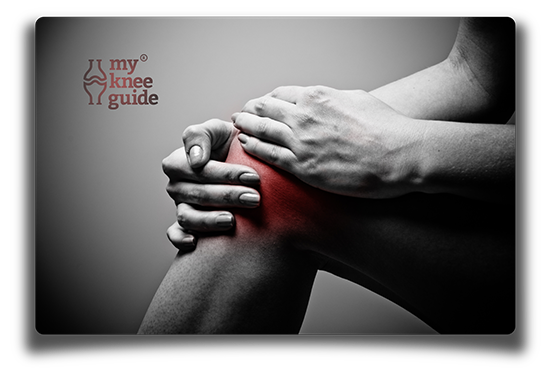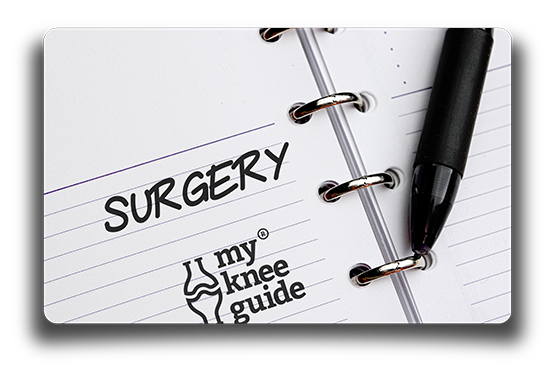When Should I Have My Knee Replaced? – A Surgeon's Perspective Written by Dr. Brian Hatten on Monday, 16 March 2020
It is such a common question. I hear it all the time in the office. When should I have my knee replaced or when am I ready for surgery? A simple question which sometimes is simply answered and other times requires a thoughtful analysis involving multiple intricacies.
Here is the answer that is frequently told by most surgeons:
Number 1: Your quality of life should be significantly negatively impacted by your knee arthritis and you should have failed some, if not all, of the available conservative treatments. These include modifying your activities, taking medication such as NSAIDs or Acetaminophen, trying injection(s) of cortisone or hyaluronic acid, using a brace, and participating in outpatient supervised physical therapy or home exercises. Each of these modalities can help to reduce pain, improve stability, and increase both motion and strength of an arthritic knee.
Number 2: Your surgeon will evaluate your x-rays to determine if you have severe arthritis. This may show up as several different findings. Sometimes it's narrowing of the joint space creating bone on bone contact. Other times it's the development of large bone spurs and deformity. Many times it's a combination of all these things.
Ok. So you have fulfilled these requirements. It's time for a knee replacement because you have satisfied both numbers one and two. Right? For many patients that's it. Those things are ultimately the baseline prerequisites from our perspective. Although there is an extra caveat if you live in United States and are covered by Medicare or certain private insurances. Patients covered by Medicare must have at least three months of conservative measures documented prior to making the decision for surgery (recovery audits).
For many patients, however, it gets so much more complicated. Sometimes this simple algorithm doesn't tell the complete story. There may be many other considerations that just aren't covered by the simple arithmetic of Number 1 + 2 = time for a knee replacement.

Seeing the rest of this analysis from the surgeon's perspective can be helpful. Yes, as surgeons we do love to operate. We spent much of our lives in school and formal training to become the best possible physician. However, that does not imply that we operate on every patient in every situation. This simple prerequisite of Number 1 + 2, may not get us to that outcome every time.
Consider this. We want your knee replacement to be incredibly successful to improve your life, reduce your pain, and improve your function. This outcome gives us huge satisfaction and pride in our work. We want our patients to recover uneventfully and not spend long periods of time in the hospital with difficult complications. We don’t want patients to require a second or third surgery on the knee, perhaps for many decades.
This is not to say that we do not manage complicated patient. When a patient presents with other medical problems or high-risk knee problems, we have be cautious and deliberate in our management when deciding on our plan of action. We do understand that sometimes complications may be unavoidable and we need to manage them and take whatever time is necessary to rectify them. But, it's always better to avoid the complication in the first place.

Here is why this key ingredient is so important. Many patients come to us who are not the ideal surgical candidate, but have fulfilled number one and number two in the algorithm. Many patients have medical reasons that will increase their complication rates. Patients with diabetes and patients who smoke have increased risk of pneumonia and stroke. Morbidly obese patients have increased rates of infections and failure of the knee replacement components. Patients with chronic leg swelling, poor circulation or wounds that heal very slowly have increased rates of blood clots and wound complications.
As a surgeon, we have to decide, do we want to take that risk along with you. Are you as a patient willing to try to mitigate these risk factors? Even if you tried, could you be successful? Sometimes patients have failed years of weight loss programs leaving them morbidly obese (Body Mass Index > 40). Other times the medical risks just can't be reversed even with the best intentions. Some patients' medical problems put them at incredibly high risk. What if the patient has significant history of stroke and heart attack?
Let's assume that as a patient you are qualified in our two-step algorithm and you are healthy. Well, shouldn't that immediately mean that you're ready to have the knee replacement and you're going to have an excellent outcome? Not always. An ideal patient may be counseled that about 90% patients will recover with a good to excellent outcome. They may expect either no pain (or minor pain), or occasional aching, swelling or some minor stiffness. Some patients will actually feel like the replaced knee is their own, and others will notice some mechanical clicking or other unusual sensations such as numbness. Even if they experience these minor issues, they will still feel much better than they did before surgery.
When you look at the studies this number that I'm discussing is an over estimation. The studies of all knee replacement patients frequently show that this number of success is closer to 80% 1. So why the difference? It comes down to patient selection. Simply, when a surgeon operates on patients who are medically optimized, than the chance of having an excellent surgical outcome increases. However, as we all know, ideal is not always obtainable and life is more nuanced than that.
So other than the medical comorbidities that I discussed, what else reduces the chance of having an excellent outcome? Patients who are taking chronic narcotics before having knee replacement frequently will continue to have pain even after surgery. Even if all the other factors are mitigated, this stays a very significant risk factor for chronic pain and an unhappy post-operative patient.

Patients who have had significant previous surgery on the knee, other than a simple arthroscopy, have increased rates of pain after surgery. Patients who have massive deformities of the knee or significant pre-operative stiffness have increased rates of post-operative stiffness, instability, and chronic pain after surgery. Patients with previous knee infection will always have an increased chance of a devastating post-operative infection. Patients who have chronic depression have lower rates of subjective success following surgery. Patients who smoke have higher rates of chronic pain even with a successful surgery. Patients who have who have litigation involving a related knee injury or who are treating their knee condition through Workmen's Compensation insurance have lower rates of satisfaction if they proceed with knee replacement surgery.
What is the ideal age to have your knee replaced? There's just no good answer for that one either. We used to tell patients that knee replacements would last for only 10 years or so. Surgeons were extremely hesitant to consider knee replacement on patients who are in their 50s or younger. However, now it's not unusual at all to have patients this young considering surgery. Currently, the knee replacement components and the surgical techniques have become so good that it's not unreasonable to expect 20 to 30 years from a knee replacement.
Younger patients are generally healthier. They can also usually participate in the physical therapy with more vigor. You would think, therefore, that surgeons would absolutely want to operate on the younger patients. However, what if that younger patient has a complication? What if that patient develops chronic pain after surgery? A younger patient may have more years dealing with and managing these complications over their lifespan.
Should we operate on patients when they're younger because of the risk of them developing medical conditions in the future that would ultimately prevent them from having surgery? Maybe. This is truly a matter of individual perspective. If I operate on a younger patient, they may have less deformity and better pre-operative motion. This may increase their chance of having an excellent outcome. But I must always ask myself the question: "what if " that patient doesn't have a good outcome or has a complication.
Are patients ever too old to have a knee replacement? Patients who are in their 80s are called octogenarians. We've studied them extensively and have found that they can do excellent with knee replacement surgery2. These patients must seriously consider those medical complication risks as they are generally more frail and more prone to complications, such as the need for a blood transfusion. Society asks “Should we also ultimately consider what the lifespan of that patient may be? Should there be societal considerations3 for the cost of the surgery in a patient who may only have several years of life left?”

I have many elderly patients in my practice. They frequently ask me "am I too old to have knee replacement and is it worth it at my age?" Here's my answer. First we talk about their medical conditions. If medically they are suitable to have surgery, then I become less concerned about the number of their age. These elderly patients frequently have multiple different other orthopedic conditions that they're managing such as arthritis of other major and minor joints, chronic back pain, or poor balance.
I ask this patient, "if I fixed your knee right now and it felt great, would this significantly improve your life? Would you be able to walk better? Would you be able to get out of the house and do the things that you are missing currently?"
Sometimes the answer is "yes". Other times, the patient tells me that those other conditions would still be so bad that they don't know if they could ever feel that level of improvement. For example, they may tell me that they still might not be able to walk because of chronic back problems, and still need to spend all day in bed. They may tell me that their other joints hurt so much that they may remain significantly disabled. They may be plagued by frequent falls due to dizziness. To these patients, I recommend conservative management for their arthritis.
What about social factors? I have many patients who are ready for surgery but can't make time for recuperation because they are the caregivers to a chronically ill family member. Some patients can't afford their deductible to have surgery, or the co-pays for post-operative therapy. I have patients who don't have the time to take off of work to have surgery. Some have no family members that can help them and feel alone and scared. As surgeons we can fix many things, but we just can't fix everything.
As a patient you must consider the following: Are you mentally ready to undergo a major operation? Do you have realistic expectations? Do you fully understand the timeline for recovery?
So how does a patient really know when they are ready for knee replacement? We frequently tell patients that "you'll know when you're ready." It is true. Patients seem to take all these factors in, and sometimes without even realizing it, get a gut feeling that they are ready. Others should spend more time with their surgeon and family talking about all these issues before making the decision.
Related Articles
Latest Blogs
- When Should I Have My Knee Replaced? – A Surgeon's Perspective
- Research Projects - Weight Loss, Mood and Pain as Related to Knee Replacement Surgery
- Return to Work after Knee Replacement – Patients Perspectives
- Return to Work after Knee Replacement – Timeline and Challenges
- ProPublica Misleads Patients about Surgical Complications
- Does Your Joint Replacement Have a Warranty?















